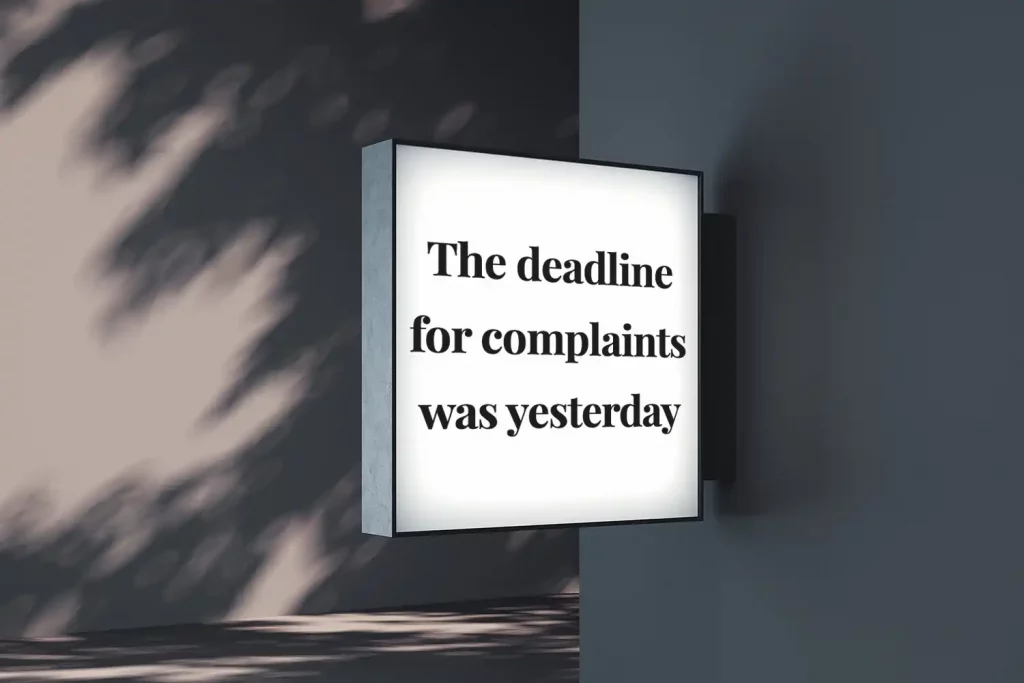Employment tribunals: Your journey as a claimant
This guide outlines the steps you take through the employment tribunal system as a claimant, from the time you decide to make a tribunal claim to the day that the tribunal hears your claim and passes judgement on it.
Rated 4.8 Stars in Over 1,000 Reviews
Most of the steps in this guide are explained in greater detail in our other guides about employment tribunals. You’ll find links to these in the relevant steps below and in our Helpful Guides listed at the end.
Are you new to employment tribunals? Read our employment tribunal overview guide here on what tribunals are and what they do.
If you know a bit about employment tribunals and are already on your tribunal journey, then use the contents list of this guide below to jump straight into whichever stage of the journey you’d like more information on.

Deciding to make a tribunal claim
Deciding to make a tribunal claim is a challenging step in anyone’s life, particularly given that you are already trying to cope with having been treated badly or unfairly at work.
In our introductory guide to employment tribunals, we set out nine really important questions that you need to ask yourself before you finally decide that you want to make an employment tribunal claim. Of those, we highlight the following two as particularly important:
1) Have you made serious attempts to reach an informal settlement with your employer and can you prove this to a tribunal (they will want to know)?
2) Do you still have enough time to submit a claim, given that there is a very strict time limit for submission (3 months less one day from the date(s) that the incident(s) you want to claim for took place?
(See our tribunals overview for more.)
Going through Acas pre-claim ‘early conciliation’
In nearly all cases, you have to start Acas pre-claim ‘early conciliation’ before you can bring a claim to the employment tribunal, although you can choose not to participate in the entire conciliation process.
As its name suggests, early conciliation is about trying to reconcile you and your employer very early on in the employment tribunal claim process so you don’t actually need to submit a formal tribunal claim at all.
During early conciliation, attempts are made by a trained Acas ‘conciliator’ to get you and your employer to settle.
(See Acas early conciliation)
Drafting and submitting your tribunal claim
You can start your claim after you have completed early conciliation.
You firstly have to complete and submit an employment tribunal claim form, called an ‘ET1’. You can print off a copy of the version provided on the gov.uk website and post it, or complete and submit it online.

Tribunal case management
Once you have submitted your ET1 claim form, its receipt by the tribunal triggers a series of tribunal ‘case management’ events. You don’t participate directly in most of these and you may not even be aware of them happening.
However, it can help to know what’s going on with your claim behind the scenes, so we have briefly outlined below some of the more important ‘case management’ actions that impact your claim:
Tribunal review of your claim form
Once submitted, your ET1 claim form will be scrutinised by the tribunal. It may be rejected at this stage, for example, if you didn’t provide all the information requested, or the information you gave was inadequate, or your claim is not one that the employment tribunal may hear.
(See Tribunal types of claims list)
Your employer’s response to your claim
If your claim is accepted by the tribunal, it will notify your employer (the respondent) that a claim has been made and give them 28 days to respond.
Your employer must respond using a form called an ET3 (a bit like the ET1 claim form) which you can see here if you are interested.
The tribunal’s review or ‘sift’ of your claim and employer’s response
If the tribunal accepts your employer’s response, the two submissions will be passed to an employment judge to ‘sift’ the contents (in other words to review and evaluate them) and to consider the next steps.
Amongst other things, the judge will consider:
- Whether any parts of the claim or response should be disallowed or ‘struck out’ for having no reasonable prospects of success.
- What ‘case management directions’ are required to get the case ready for the final hearing.
The tribunal’s response to your claim
After the sift, the tribunal will usually write to the parties with directions about what will happen next. This will vary, depending on what is in the ET1 and ET3 and what types of claims are being made.
If it is a straightforward claim, the tribunal will send out a hearing date with a timetable setting out what needs to be done and by when – such as disclosing documents and submitting witness statements – as outlined further below.
If it’s a more complicated case – for example, involving discrimination or whistleblowing – then the tribunal will ‘list’ (ie schedule) a Preliminary Hearing to discuss management of the case up to the time of the hearing.
The tribunal may also list a separate preliminary hearing to decide a point of law.
Tribunal orders and directions
At any time following the sift – and as already indicated above – the tribunal is likely to make “orders” or give “directions” to the two parties involved in the dispute.
These set out tasks to be completed by a certain date to ensure the case is ready for the hearing.
When an order is made with a date, you generally have until midnight to ensure compliance unless a different time is specified.
The tribunal expects you to cooperate with the other side to ensure compliance with the dates. If the other side misses a deadline, then you should liaise with them and try to agree on an alternative date.
It is important that you should respect and make every effort to adhere to deadlines.
‘Unless’ orders
If the other side misses a deadline, then try to agree on a new deadline with them and resist the temptation to complain immediately to the tribunal about the matter.
The exception to this is if the other side’s non-compliance is significantly hindering your own preparations.
In such a case, you may want to notify the tribunal and request what’s called an “unless order.” Put simply, an ‘unless order’ is an order that says something like ‘unless you do X [whatever it is] then the penalty will be Y,’
The penalty may include such drastic action as the claim or defence case being struck out and the other side winning by default.
‘Applications’ made during the tribunal
The parties can each make a host of applications, which is asking the tribunal to do something – such as make an ‘unless order’ as mentioned above.
The side that has not made the application will usually be asked to comment before the tribunal decides how to respond. The tribunal may hold a hearing to reach a decision about the application.

Final preparations for the tribunal hearing
After witness statements are exchanged the parties will prepare for the hearing itself. What occurs during this period can vary, but some examples are:
- Preparing for cross-examination by the other side. (See Your tribunal hearing)
- Convening a pre-hearing conference where you and any witnesses can meet in advance with each other and your legal representatives if you have any.
- Ensuring all documentation is present in the bundle and updating the bundle. (See also Your tribunal hearing)
- Negotiating a settlement, with the two sides discussing the possibilities for settlement further. Settlement discussions can happen at any time before the end of the hearing, including during the hearing itself. (See Settlement agreement negotiations)

The tribunal hearing
You should be notified well in advance of the hearing date, time and location.
Some cases are heard remotely, either in full or in part, using secure online video conferencing.
If your case is thought suitable for a remote hearing, you will be contacted by your local tribunal to check out if you have access to the necessary computer-based equipment for such a venture and if so, to make the necessary arrangements.
Irrespective of the venue, there is a lot for the tribunal panel and all participants to do in these final few weeks to prepare for the hearing.
You need to know what to expect on the day itself. For example, how to handle cross-examination, particularly if you are representing yourself, and all the other tribunal procedures.
(See Your tribunal hearing for more)
The tribunal judgement and appeals
The tribunal’s decision about your claim may be notified to you verbally by the tribunal itself at the end of the hearing and then confirmed in writing, or just notified in writing shortly after the hearing.
If you’ve won the case
If you’ve won, the tribunal may give you the chance (whilst you are still at the hearing), to reach a financial settlement directly with your employer.
If that’s not possible, then the tribunal will determine the amount of the compensation award.
They will probably tell you in writing after the hearing what they have decided, along with other detail about how and when your employer should pay you.
If you’ve lost the case
If you’ve lost the case but don’t accept the decision, you have 14 days from the date of getting the tribunal judgement to ask the tribunal to reconsider it.
Alternatively, you can appeal the decision to the Employment Appeal Tribunal usually on the grounds of a legal mistake having been made and within the 42-day deadline for making appeals.
Impact of a reconsideration or appeal
If either you or your employer decides to ask the tribunal panel to reconsider or appeal the tribunal judgement, then this is likely to delay a final decision for weeks, if not months.
You also have no guarantee that either will result in the outcome you want.
(See Tribunal judgements and appeals for more)

Next steps
If you are about to embark on your own employment tribunal claim journey, or if you are already on your way, you may like guidance from expert employment law specialists such as Monaco Solicitors.
We can help you at any one or more stages in your tribunal journey, such as drafting your tribunal claim form ‘details of claim’ or, later on, your witness statement.
Or we can be there for you throughout your journey – whichever suits you best.
If you’d like to find out more about our terms, see our Fees page here.
Also, check your household insurance policies to see if you have legal expenses insurance that may cover the costs of legal representation.
If you would like to talk to us about your tribunal case, then get in touch:
- Via this link
- By phone on 020 7717 5259
- By email: communications@monacosolicitors.co.uk
Our related guides
- Employment tribunals: An overview
- Employment tribunals: Your journey as a claimant
- Employment tribunals: Commencing the Acas pre-claim process
- Employment tribunals: ET1 form – how to make a claim
- Employment tribunals: preliminary hearings
- Employment tribunals: Preparing your witness statement
- Employment tribunals: Your tribunal hearing
- Employment tribunals: Judgements and appeals